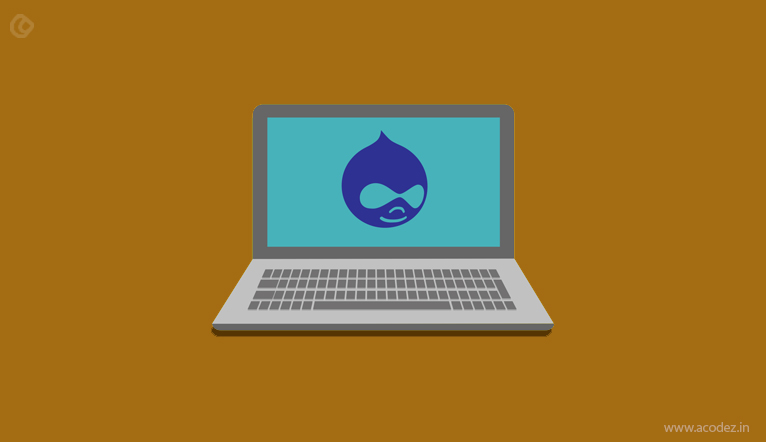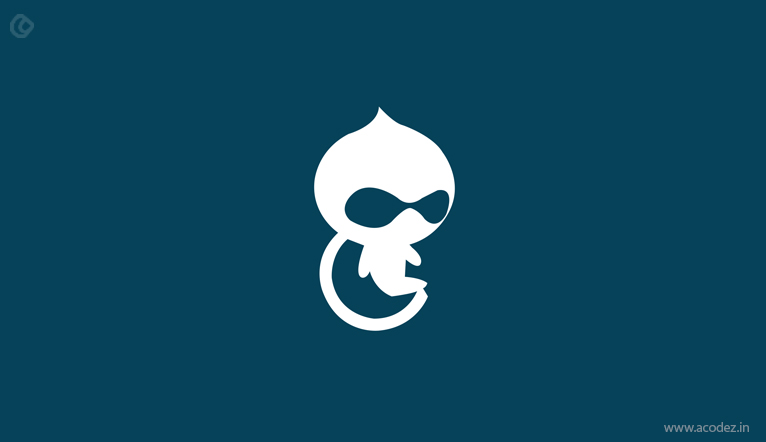Today, Drupal is one among the most preferred and popular web content management platforms. You can see that a number of NGOs, government institutions, businesses and others are using Drupal as part of their business goals. One of the reasons why people choose Drupal is that it is highly scalable. Also some developers say that Drupal is flexible too. With Drupal, you can easily publish websites. Also, the flexibility that Drupal provides in sharing multiple languages across multiple devices is unbelievable.
These days, the developers are transforming content management into unbelievably power-packed solutions – all thanks to Drupal. It has a wonderful backup from the world’s largest open source community – so you can always look forward for help as and when needed.
We always strive hard to ensure that our websites do not take too long a time in loading, rather we want to keep it a light-weight affair. This could be maintained by incorporating in security, flexibility and reliability, which help in creating features that are lightweight and are just the most important aspects of the website.
It comes with a really powerful architecture that provides the provision to integrate it with third-party apps. With Drupal, you can enjoy all these features, while ensuring that your final product is in line with the technical and business requirements as needed.
Today, more than one million organizations across the world are implementing Drupal and some of the big names among these include the Harvard University, Tesla Motors, The Economist, The White House, the Government of Australia, etc.
And the most interesting part of using Drupal is that it has a backup from a huge open source community. A number of organizations are building awesome solutions using Drupal. Some even develop Drupal further. The support of the community is so big that they have been adding real time solutions regularly. This includes everything from design to system architecture.
So let us delve deeper into the two kinds of Drupal that people have been using lately. These include Drupal 8 and Drupal 7.
Firstly, let us take Drupal 7. As we already discussed, Drupal 7 is one among the most preferred Drupal platforms. This is mainly because it is friendly and can be handled without any hassles. It allows you to develop content management platforms that can be used to build any type of website, including the most integrative social communities, blogs and even microsites.
What makes Drupal 7 a favorite among the developers?
This favoritism is owed to some of the following features that Drupal 7 exhibits:
Theme: The new Render API that comes with Drupal 7 provides you with full control of what should be displayed on the screen with a few radical hooks. Also you can enjoy the beauty of the semantic web markup provided by the new RDF module.
Content flexibility:

Drupal is popular for its facility of defining custom fields, which you can apply across users, terms, content types, comments and wherever you would like to. You can save the data that will be applied across these custom fields within NoSQL, remote storage or SQL.
Accessibility

With Drupal 7, the accessibility of admin screens is awesome. A number of front-end improvisations are happening helping you to further build websites that are highly accessible.
Improved Database Support
Drupal 7 is empowered with a new kind of database layer, which is flexible with PostgreSQL, SQLite or MySQL, as per your choice. You can always install contributed modules that helps in using MySQL Server, Oracle, etc.
Automated Code Testing

This version comes with an automated testing framework, which holds around 30,000 built-in tests, providing continuous testing of all core patches and contributed modules from Drupal.
Images
The inbuilt features facilitate adding images to the content with ease. You can now generate a variety of versions for thumbnails, image styles and previews. With Drupal 7, you can combine private and public file handling.
Extensibility
The community support as we have discussed about Drupal in general is equally applicable to Drupal 7 as well. This community effort has led to the development of over 800 modules, which includes Pathauto, WYSIWYG and Views.
Easy and simple

Drupal 7, unlike the previous versions, comes with a revamped administrative interface that makes your everyday functionalities easier to locate and function. Site builders and content developers are enjoying a variety of functionalities that had been added up to this previously.
Now, let us find out more about Drupal 8.
Drupal platforms are preferred for the robust core that these offer. We will discuss some of the Drupal 8 features that makes it a more responsive, integrable, flexible and popular platform. Let us take a look at these:
Fully responsive is the most noted feature of its architecture: With the Drupal 8 platform, you can deliver experience via tablets, phone or web browser or for that matter anywhere, wherever the content or data should flow across today or tomorrow.
Drupal 8 is famous for its authoring capability: It provides high speed, beauty and professionalism all embedded in one point. With Drupal 8, you can experience ease of use than any other versions of Drupal. It comes with inline and in-context editing on page apart from the WYSIWYG editor. This allows you to edit and manage content on site with ease.
Content delivery is highly flexible: Another notable feature of Drupal 8 is the flexibility that it offers in content delivery. You can always use Drupal as a content management platform for creating and delivering content as a service through any channel, device or application as you please. Also Drupal 8 allows you to import content from other channels, apps or devices.
Integration with Drupal 8: Integration is made easier with Drupal 8 since there is a growing ecosystem that allows to embed connected digital technologies. These features when combined together become a core factor for marketing. With Drupal 8, you can easily handle web content management and digital experiences as it provides easier integration with other technologies as you please. Drupal 8 allows you to integrate with some of the existing marketing technologies. It also allows you to experience a great deal of freedom when it comes to select technologies that can be easily integrated with email marketing or marketing automation solutions.
Localization or translation with Drupal 8: This is very much easier with Drupal 8. This platform was made flexible to be supported by language of the author’s choice, while the interface was customized to integrate any number of languages as per the choice.
After taking a look at both Drupal 8 and Drupal 7, and their features, it is highly confusing as to which of these is best for our needs.
Now let us find out some of the major differences between Drupal 7 and Drupal 8.
The New Theme Engine
Drupal 8 flaunts its new theme engine, namely Twig. This PHP-based theme engine that Drupal 8 offers is intended to allow programmers to design templates incorporating in a more simple syntax. It allows developers to create fast and secure templates. In short, Twig allows developers to create professionally beautiful websites to meet business needs.
Text Editor
Drupal 8 again flaunts an interesting text editor, known as CKEditor. This editor boasts a visual HTML editor that is robust. With this editor, the users can enjoy the benefits of WYSIWYG editing functions previously available for desktop-based software apps, such as MSWord. With this, the developers can now enjoy some of the common word processor features.
Field types:
With Drupal 8 comes add-ons, including new field types, such as email, telephone, date, reference and link. This makes it easier for the programmers to include new fields without having to define the field types separately. This will allow the users to add new files for contact forms, nodes, blocks and comments by simply having the field type and name defined.
Quick Edit Module
Drupal 8’s new quick edit module allows developers to edit content directly from the front-end of the website. With the previous version of Drupal 7, developers were miffed as they always had to redo a lot of editing work. The editor can always make changes through the front-end now.
Images That Are Responsive:

With Drupal 8, you have a variety of styles that can be used for each image and this feature was not available with Drupal 7, which made it necessary for developers to depend on image styles for resizing images based on screen size of individual devices including image styles. And this also allows them to use a variety of styles for devices, regardless of their screen size.
Core Multilingual Modules
When working with Drupal 7, the developers are forced to include in a number of modules if they needed multilingual websites. But, with Drupal 8, there comes four key modules embedded in the core. The developers can now enjoy a variety of modules, such as content translation, configuration translation, language and interface translation. With these modules, the users can easily configure the language of their choice and apply it to their content and get the website translated.
Views
Views form a core component of Drupal 8. But with Drupal 7, developers had to use these views as modules. They can now access views directly from the admin screens. Now it is easier for developers to access and customize views as it is less time consuming.
In-built Web Services
Web services are further simplified by Drupal 8 as it includes four new modules in the core, including HTTP Basic Authentication, serialization, HAL and Restful web services. But, Drupal 7 required the developers to incorporate many contributed modules while creating web services. Now, the developers can access the core models and serialization.
Now you can decide for yourself as to which version of Drupal would you prefer: Drupal 8 or Drupal 7?
Are you looking for website development services?
Acodez is a web development company in India offering all kinds of web design solutions at affordable prices. We are a SEO agency based in India. For further details, contact us today.
Looking for a good team
for your next project?
Contact us and we'll give you a preliminary free consultation
on the web & mobile strategy that'd suit your needs best.











